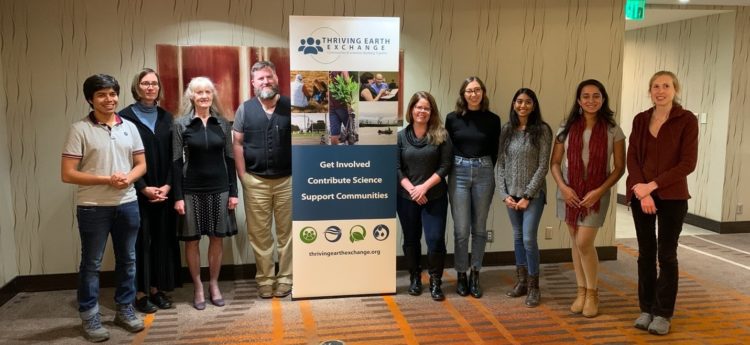Expanding the reach of community science through thoughtful leadership training
The Thriving Earth Exchange Community Science Fellowship has quickly gained steam since its launch last summer. Our first cohort of fellows launched in September and they’re already making great progress matching communities with scientific partners (more on that below). In addition, we have just launched our second cohort of fellows! The new cohort kicked off with a two-day in-person training in early December.
About the Fellowship
Thriving Earth Exchange Community Science Fellows are current and future leaders in the community science movement. After being matched with a local community, each fellow is responsible for shepherding a community science project from idea to impact. This includes getting to know the community, identifying ways science can advance community goals, recruiting partner scientists, managing and supporting the project, and helping to share the team’s story and impact. Fellows serve in a volunteer capacity for a period of 6-18 months.
Fellowships begin with a two-day, in-person, hands-on training from Thriving Earth Exchange staff. The training covers the principles of community science and its relationship to issues of diversity, equity and inclusion, and gives participants the chance to practice key skills for designing successful projects, matching communities with scientists and engaging with partners throughout the duration of a project. After the training, fellows launch their projects while receiving ongoing support and mentorship from Thriving Earth staff, a peer group of fellows and a dedicated community science mentor.
Additional cohorts will be launching in 2020. Learn more and apply.
Meet the New Fellows
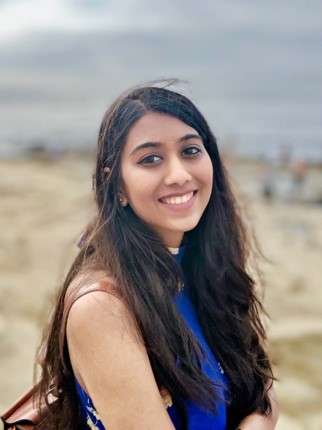
Maitreyee Doshi is a Project Engineer at First Solar where she works on utility-scale solar projects. Prior to working in the utility-scale solar sector, she worked as a residential solar designer with Sunrun. She also volunteers in various STEAM events with the local school districts. Maitreyee received her B.Tech in Electronics and Instrumentation from Vellore Institute of Technology and a P.S.M degree in Solar Energy Engineering and Commercialization from Arizona State University. In her free time, Maitreyee enjoys reading, hiking, and is currently learning to play the violin.
“This is an amazing opportunity to see how science can be applied differently and see the direct impact it can have on a community. […] My hope is to be able to provide a result to the community that they can build on.” – Maitreyee Doshi

Chad Heinzel integrates geologic, archaeologic and geographic techniques to investigate possible environmental and anthropogenic influences on the socio-economic development of indigenous populations in Sicily, Iowa and the Northern Rocky Mountains. The overall goal of his research is to understand and communicate the interrelationships between human civilizations and their environments (landscapes/soils/rivers); it is his hope that by effectively quantifying and communicating the environmental successes and failures of past human civilizations, we can strengthen/improve our own interactions/relationships with the Earth’s dynamic landscapes. He is particularly interested in the Neolithic to Iron Age (7000 to 800 B.C.) of western Sicily and (Late Woodland) Native American transitions from hunting and gathering to agriculture. He has conducted research and taught in southern Italy, Sicily, North Dakota, and Iowa for the past 20 years. Students are an integral part of his research, teaching and service efforts as he engages, trains and prepares future geoscientists. He also believes that it is vital to engage our citizens, such as teachers, parents, business professionals, politicians and teachers, to facilitate environmental and geologic awareness, literacy and appreciation.
“[It is] time to move the groundswell of community science into local, regional, and global realities.” – Chad Heinzel
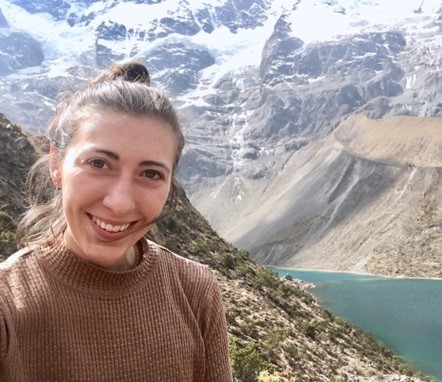
Anna LoPresti is the Sustained Assessment Specialist with the Consortium for Climate Risk in the Urban Northeast, a NOAA RISA program. She is based at Columbia University in New York, where she conducts research on local climate adaptation activities in the region as ongoing input into the National Climate Assessment. She works with stakeholders to ensure that climate information is locally relevant, accessible and successfully integrated into decision-making in the urban corridor from Philadelphia to Boston. Anna is a member of the Environmental Justice Working Group with WE ACT for Environmental Justice, a community-based organization in Northern Manhattan. She holds a Masters of Science in Environmental Change and Management from the University of Oxford and a Bachelor of Arts in Sustainable Development from Columbia University. Anna is originally from Tower Lakes, Illinois.
“I hope to gain a better understanding of the process communities take to develop climate action plans so that I can better contribute to those efforts in the future. I hope to elevate the voices of communities doing important work to promote their own resilience.” – Anna LoPresti

Jill Petraglia Parsons is the Associate Director of Science Programs at the Ecological Society of America (ESA) where she manages a diverse portfolio of programs that connect the research and management communities. During her time at ESA, she co-founded the Sustaining Biological Infrastructure Training Initiative, which helps scientists gain key business, communication, and strategic planning skills to lead field stations, labs, collections and databases with confidence. Jill holds a B.A. in Environmental Sciences and Policy from Duke University and an M.A. in Anthropology of Development and Social Transformation from the University of Sussex. Her interests include meeting facilitation, training, interdisciplinary collaborations and community engagement. She spends most of her free time reading, dancing and chasing after her two daughters and two dogs.
“I really think community science is the way forward to build public trust in science and move towards solving complex environmental [issues] at a local level.” – Jill Parsons
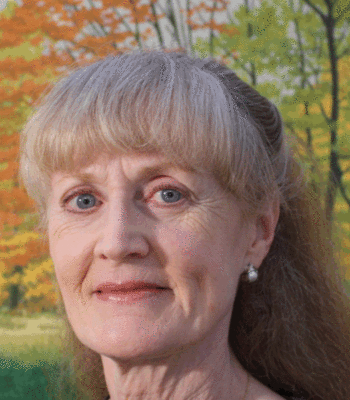
Sharon Pfeifer has lifelong exposure to natural and social sciences and the arts. She has degrees in Ecology, Anthropology, Public Affairs and Policy, and Conservation Biology. Fellowships with the American Association for the Advancement of Science and Minnesota’s Bush Foundation enabled her to engage in community-science professional work in many developing countries and the state of Minnesota. In the fall of 2019 Sharon retired after nearly 27 years with the MN Department of Natural Resources (DNR) as a community assistance and natural resources manager. Her chief accomplishments include: 1) creation and management of DNR’s regional Metro Greenways Program with its community grants and Green Infrastructure workshops for local government staff and builders; 2) development and offering of interagency groundwater protection events for local government staff; and 3) development and facilitation of climate change literacy events for
agency Divisions. Sharon appreciates the voluntary opportunities to continue assisting communities with their environmental issues as a Thriving Earth Exchange Fellow and advocating for more community-science assistance in short supply.
“[Community science] needs to grow and it is time to get articles about it in the literature and on other media. Also [it would be helpful to] identify foundations that do community work and need help from professionals to develop good efforts to fund.” – Sharon Pfeifer
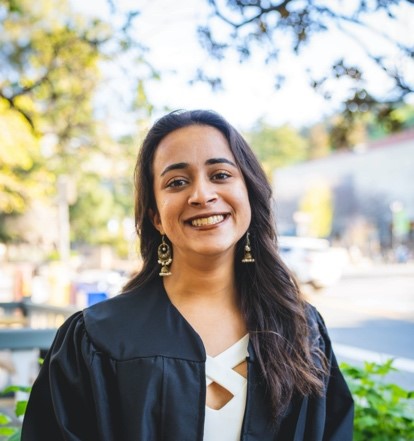
Garima Raheja is a recent graduate from the University of California, Berkeley, where she earned a B.A. in Data Science and a B.S. in Civil and Environmental Engineering. Working at the nexus of science and environmental justice, Garima hopes to empower communities with the tools to make change. She currently works at the Maui Nui Botanical Gardens in Kahului, Hawaii, serving as a seed bank manager helping preserve native endangered species, and serves as a U.S. State Department Air Pollution Fellow and on the AGU Art and Science Community Leadership Team, and has previously worked for NASA, NOAA, University of Hawaii at Manoa, and as the President of the Bay Area Environmentally Aware Consulting Network. In Fall 2020, Garima will begin her Ph.D. at Columbia University, focusing on low-cost solutions for environmental monitoring.
“I hope that instead of going in with the idea of “helping,” we go away with the hopes of working together. I know that it’s hard to manage expectations but I’m eager to create a group dynamic that fosters inclusivity and empowerment.” – Garima Raheja
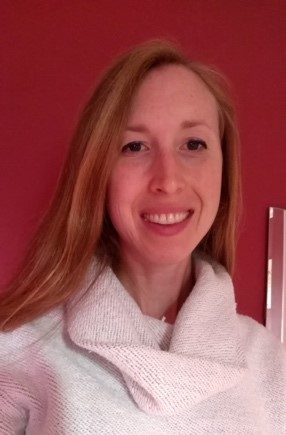
Kathryn Semmens is the Science Director of the Nurture Nature Center (Easton, Pennsylvania) where she oversees scientific programming, educational programs using the Center’s Science on a Sphere exhibit, and related grant projects. At NNC, she helps advance outreach efforts on scientific and environmental issues generally, with a special emphasis on floods, climate change, community resilience and social science research. She holds a Ph.D. in environmental and earth sciences from Lehigh University, along with a master’s degree in marine policy from the University of Delaware and a bachelor of science in environmental studies from Ursinus College. Kathryn was previously a postdoctoral associate with the Hydrology and Remote Sensing Lab at USDA’s Agricultural Research Service and has also worked for the Pew Environment Group in Washington, D.C. Her awards include a NASA Earth and Space Science Fellowship for doctoral research, a Udall Environmental Scholarship and an EPA Greater Research Opportunity Fellowship for her undergraduate studies. Kathryn’s interests focus on the nexus of science, art, policy and community.
“[Community science] is the way science should be. This is the change science needs to stay relevant, trusted and serving the public good. We (the world) needs more of this.” – Kathryn Semmens
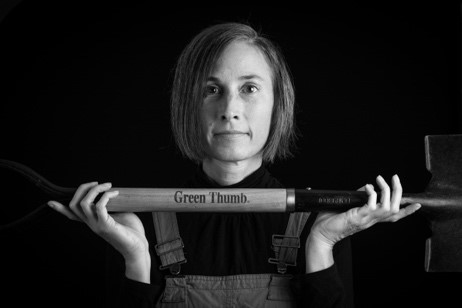
Shelly Strom studied science communication and landscape architecture at the University of Wisconsin-Madison and has lived in Madison for most of her life. She has also lived in Trinidad and Tobago, Singapore, New Zealand and France. Her lifelong goal is to foster connections of people, place, knowledge and wisdom. She is an observer by nature and passionate about trees and bumblebees.
“There are so many passionate people who love science and community, and community science! Every scientist in every community would benefit from the synergy of community science.” – Shelly Strom
Update on Fellowship Projects in Progress
Back in September, we introduced you to our first cohort of fellows: Pamela Braff, Cameron Dunn, Caitlyn Hall, Julia Jeanty, Eva Kostyu, and Brendan O’Leary. After working with community leaders to plan and scope projects, most of the fellows are now at the stage of identifying volunteer scientists to partner with the communities. Explore the project details and follow their progress!
- Developing a methodology for measuring changes in albedo to reduce the urban heat island effect in Cambridge, Massachusetts
- Addressing the public health effect of well water contamination by naturally occurring uranium in Glastonbury, Connecticut
- Assessing the water chemistry of tributaries in the Mahoning River watershed in Youngstown, Ohio
- Collecting and analyzing data on groundwater spring makeup and quality in Rockbridge County, Virginia
- Evaluating ordinances and policies to reduce flood risk in Horry County, South Carolina
- Discontinued project: Community leaders for a project in Boynton Beach, Florida, decided to move forward without a scientific partner after the scoping process helped them determine that scientific assistance was not needed at this time.

